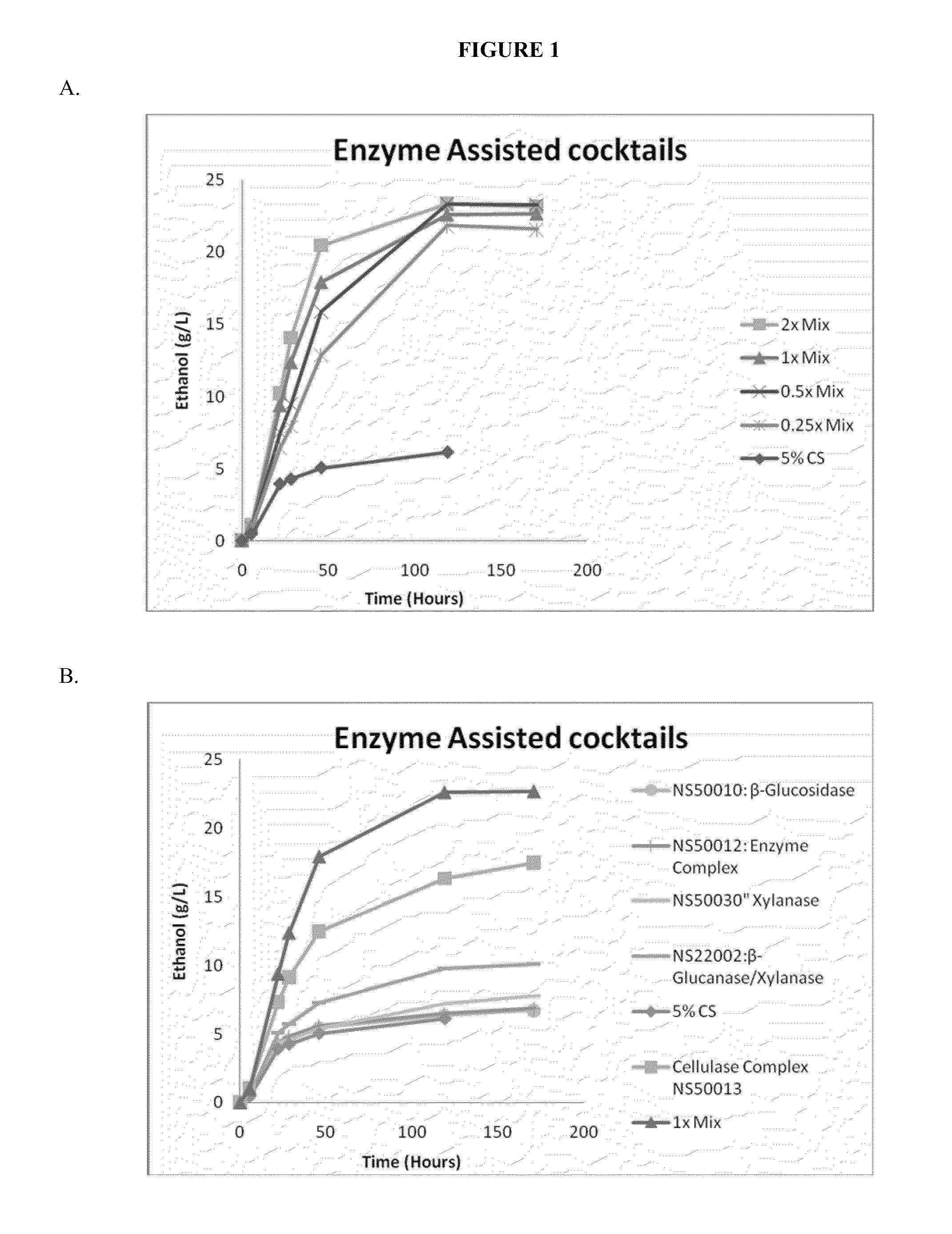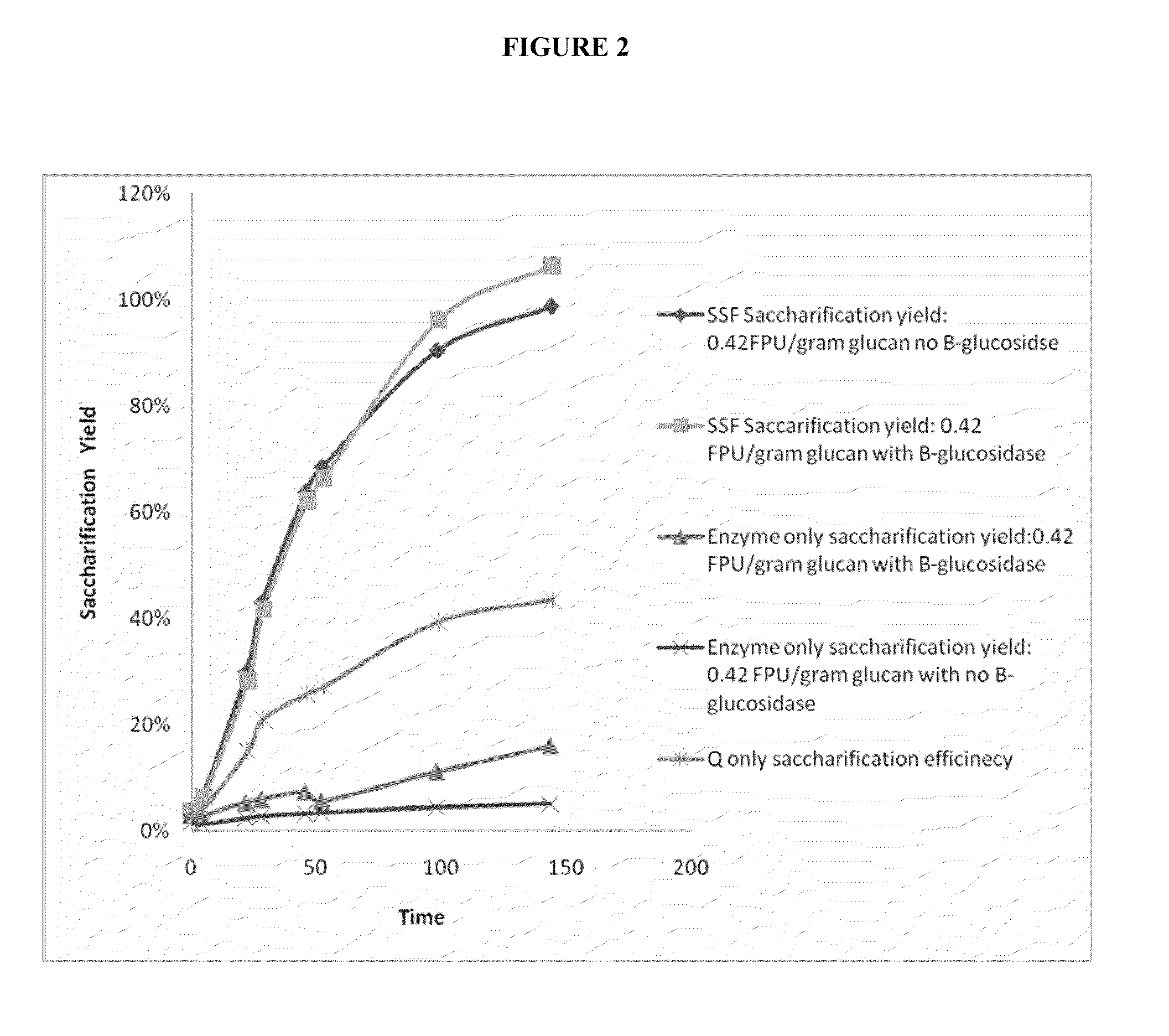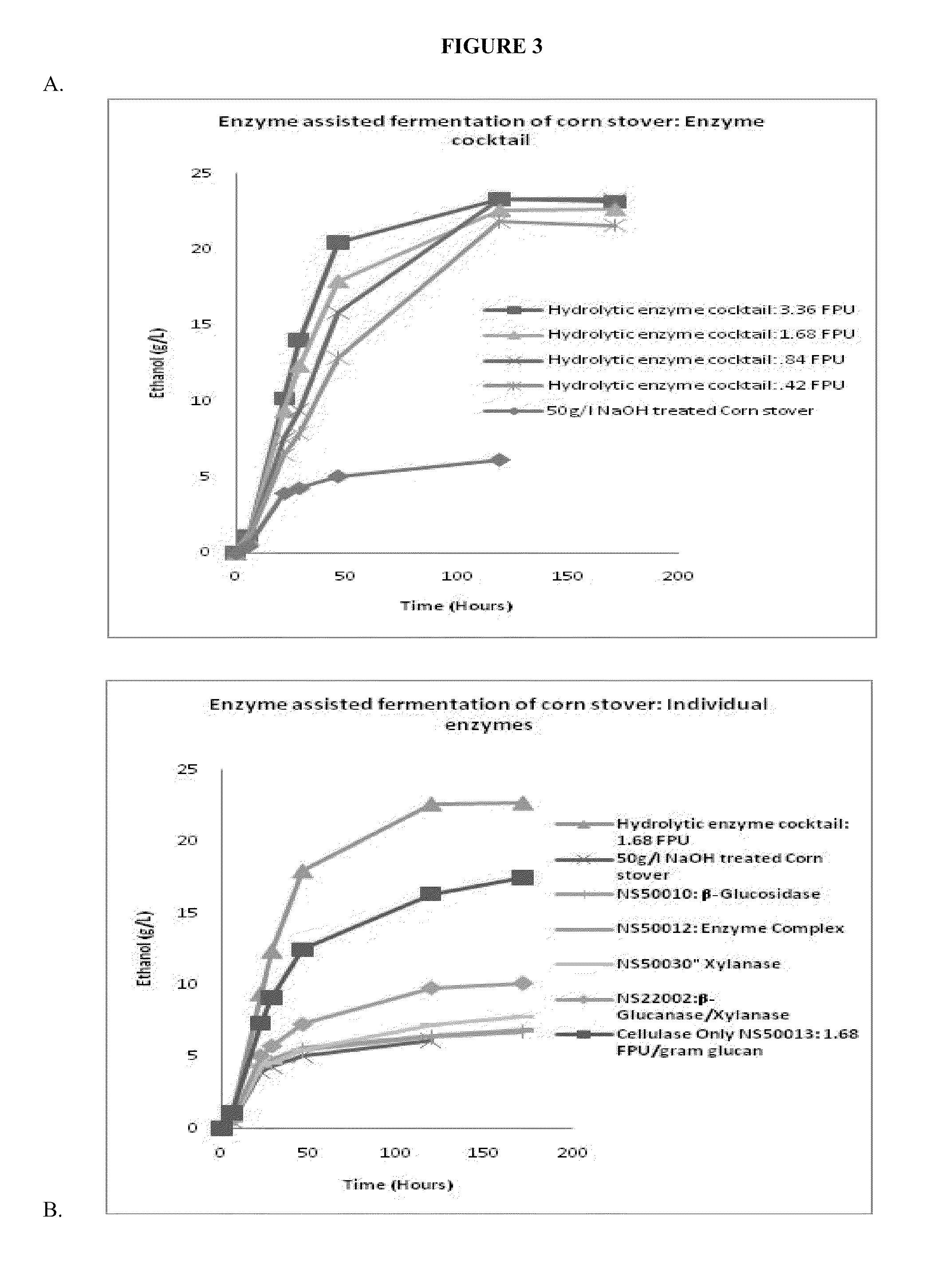Compositions and methods for improved saccharification of biomass
- Summary
- Abstract
- Description
- Claims
- Application Information
AI Technical Summary
Benefits of technology
Problems solved by technology
Method used
Image
Examples
example 1
[0207]To study the effects of exogenous enzyme supplementation, hydrolytic enzyme mixtures and individual hydrolytic enzymes were added during the fermentation of a corn stover biomass.
[0208]The following operating conditions and process parameters for C. phytofermentans were followed for fermentation of NaOH-pretreated corn stover with enzyme augmentation in 250 ml shake flasks with 100 ml of culture medium (Table 3).
TABLE 3Operating conditionspH6.5; range of from about 6.0 to about 7.0Temperature35° C. . . . Shake flasks were incubated intemperature controlled cabinetsAgitation175 rpmDegassingSparging with N2 to achieve redox potential lessthan −300 mVBase for pH control4N NaOHMode of operationBatchInoculation size0.5 g / L on dry wt. (2 × 109 CFU) use dfo reachflask
[0209]Seed propagation media (QM1) recipe:
g / L:QM Base Media:KH2PO41.92K2HPO410.60Ammonium sulfate4.60Sodium citrate tribasic * 2H2O3.00Bacto yeast extract6.00Cysteine2.0020x Substrate StockMaltos...
example 2
Microorganism Modification
[0226]Constitutive Expression of Cellulases I
[0227]pIMPCphy
[0228]Plasmids suitable for use in Clostridium phytofermentans were constructed using portions of plasmids obtained from bacterial culture collections (Deutsche Sammlung von Mikroorganismen and Zellkulturen GmbH, Inhoffenstraβe 7 B, 38124 Braunschweig, Germany, hereinafter “DSMZ”). Plasmid pIMP1 is a non-conjugal shuttle vector that can replicate in Escherichia coli and C. phytofermentans; additionally, pIMP1 (FIG. 7) encodes for resistance to erythromycin (EmR). The origin of transfer for the RK2 conjugal system was obtained from plasmid pRK29O (DSMZ) as DSM 3928, and the other conjugation functions of RK2 were obtained from pRK2013 (DSMZ) as DSM 5599. The polymerase chain reaction (PCR) was used to amplify the 112 base pair origin of transfer region (oriT) from pRK290 using primers that added ClaI restriction sites flanking the oriT region. This DNA fragment was inserted into the ClaI site on pIMP...
PUM
 Login to View More
Login to View More Abstract
Description
Claims
Application Information
 Login to View More
Login to View More - R&D
- Intellectual Property
- Life Sciences
- Materials
- Tech Scout
- Unparalleled Data Quality
- Higher Quality Content
- 60% Fewer Hallucinations
Browse by: Latest US Patents, China's latest patents, Technical Efficacy Thesaurus, Application Domain, Technology Topic, Popular Technical Reports.
© 2025 PatSnap. All rights reserved.Legal|Privacy policy|Modern Slavery Act Transparency Statement|Sitemap|About US| Contact US: help@patsnap.com



